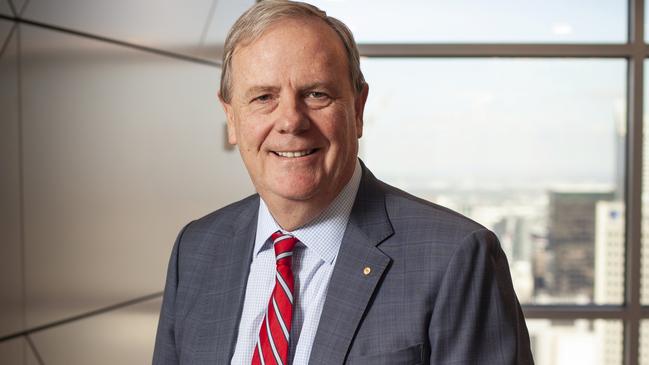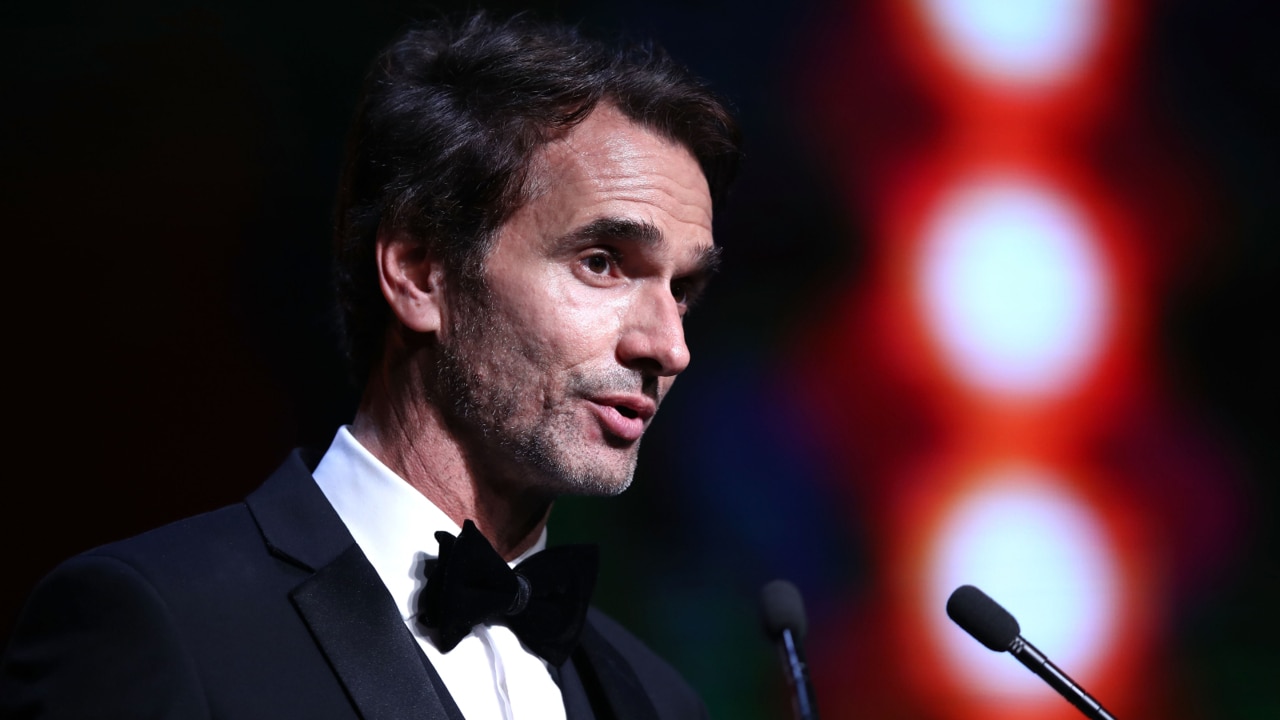Don’t raid Future Fund: Peter Costello
Peter Costello wants the next Future Fund chair to oppose federal governments raiding the $205bn vehicle for politically popular policies.

Peter Costello is urging the next chair of the Future Fund to show “strength and stature” in arguing against any proposals allowing federal governments to raid the $205bn vehicle to pay for politically popular policies, claiming that such an approach would lead to a future of higher taxes.
In what will likely be his final speech as Future Fund chair, Mr Costello on Monday will also raise alarm over the escalation “unfunded” costs of the insurance scheme for injured and deceased Australian Defence Force personnel, ADF Cover.
Australia’s longest-serving treasurer will take thinly veiled swipe at the former Coalition government for creating ADF Cover without providing any new capital to the Future Fund, with the extra costs likely to be borne by the budget in the future unless it is addressed by Jim Chalmers.
Mr Costello will tell the UBS Australasia conference that ADF Cover was forecast to grow from $4bn in 2023 to $127.4bn by 2045 and $359.3bn by 2060.
“That is an example of one generation transferring liabilities to the next,” Mr Costello will say.
“The number of claims under ADF cover is rapidly increasing, particularly for post-traumatic stress disorder.

“With life expectancy also growing, these claims are expected to become a much larger liability.”
The Future Fund will need to more than double its assets to $512.9bn by 2060 if it is to fully fund the needs of public servant retirement packages, according to the May budget papers.
“When you see estimates of the unfunded superannuation liabilities of the Australian government, bear in mind a significant component of this will be unfunded military injury and disablement claims,” he will say.
Mr Costello established the Future Fund when he was treasurer in 2006 to help pay for the commonwealth’s ballooning public sector superannuation liabilities, seeding it with a $60bn investment mostly from the Howard government’s surpluses.
It is due to begin distributing its yearly returns to the government in 2026-27, but there are calls for the government to use its capital to fund spending programs or pay down debt.
On Monday, Mr Costello will urge his yet-to-be named successor to “guard this legacy against foolhardy schemes to spend it”.
“Our sovereign fund was designed to smooth the effects of the ageing of the population,” Mr Costello will tell the UBS Australasia conference.
“As the government’s financial position declines, I expect we will see more plans to spend it. It would be a way of favouring current voters over future voters – the ones who are not voting yet.
“But remember this: once it is spent, it is gone,” he will say.
“Once it is spent, there is no significant asset on the government’s balance sheet. Once it is spent there is nothing to offset the growing liabilities of debt, of unfunded pensions and unfunded military injury claims.
“Once it is gone, the pressure to raise taxes and borrow debt will accelerate.”

Pointing to the difficulty the Future Fund will have in meeting its objectives, Mr Costello will outline the flawed design of ADF Cover.
“In the normal employment market, an employer would pay a worker’s compensation premium, or the employee would pay through their superannuation account, to insure against injury,” he will say.
“The claims would be covered by the premiums and the claimants would be sure there was adequate provision to fund their claims.
“But the government does not pay a premium to cover ADF death and disablement care. As a result, it is saving part of the cost of employing these defence personnel with the promise their claims will be paid out of future tax revenue. It is not funding the liability.”
Mr Costello was appointed to the Future Fund board by Kevin Rudd in 2009 and has served as chair since 2014.
Mr Costello will say there was “nothing inevitable” about establishing the Future Fund, with its role being to “smooth the effects of the ageing of the population”.
“The then government could have spent the money on roads, or bridges, or Medicare, or pensions. It could have spent the money on buying votes,” he will say.
“But it saved and invested it, and the Australian government is $200bn stronger today than it otherwise would have been.
“It is a pity that we couldn’t maintain budget surpluses and capital contributions into the Fund. We could have done better,” he will add.








To join the conversation, please log in. Don't have an account? Register
Join the conversation, you are commenting as Logout